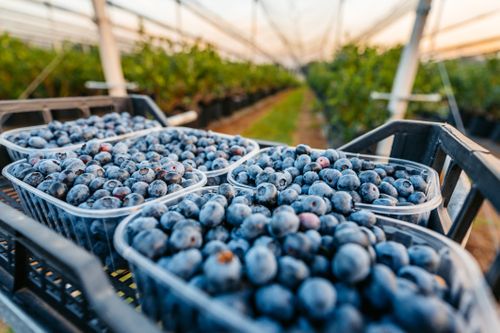Share this @internewscast.com
Australia’s regulatory authority for pesticides has raised new health concerns regarding a chemical used on berries, particularly affecting young children.
Raspberries, blueberries, and blackberries, known for their rich nutritional value, have become popular choices among families seeking healthier diet options.
However, the Australian Pesticides and Veterinary Medicines Authority (APVMA) has indicated a need to tighten existing rules concerning the use of dimethoate. This insecticide is commonly applied to protect berries from fruit fly damage.

This week, the APVMA announced that children aged two to six who consume berries treated with dimethoate within seven days of harvest could be exposed to unsafe levels of the chemical.
The authority has decided that fruit growers must now observe a minimum 14-day interval between applying the pesticide and harvesting, allowing the chemical more time to break down.
The APVMA emphasized the necessity of modifying current label instructions to ensure that using dimethoate on berries does not pose “an undue hazard to people.”
Until now, growers had to wait one day after spraying blueberries and seven days following the treatment of raspberries and blackberries.
Earlier this year, the APVMA began reviewing potential health hazards from dimethoate amid the growing popularity of berries.
Data from Food Standards Australia and New Zealand showed Australians’ consumption of blueberries, blackberries and raspberries has jumped since the last review of the pesticide in 2017.
Health concerns over dimethoate resulted in European Union countries banning the chemical in 2019.
Industry body Berries Australia told 9news.com.au that figures it collected over the past five years showed dimethoate usage had fallen.











